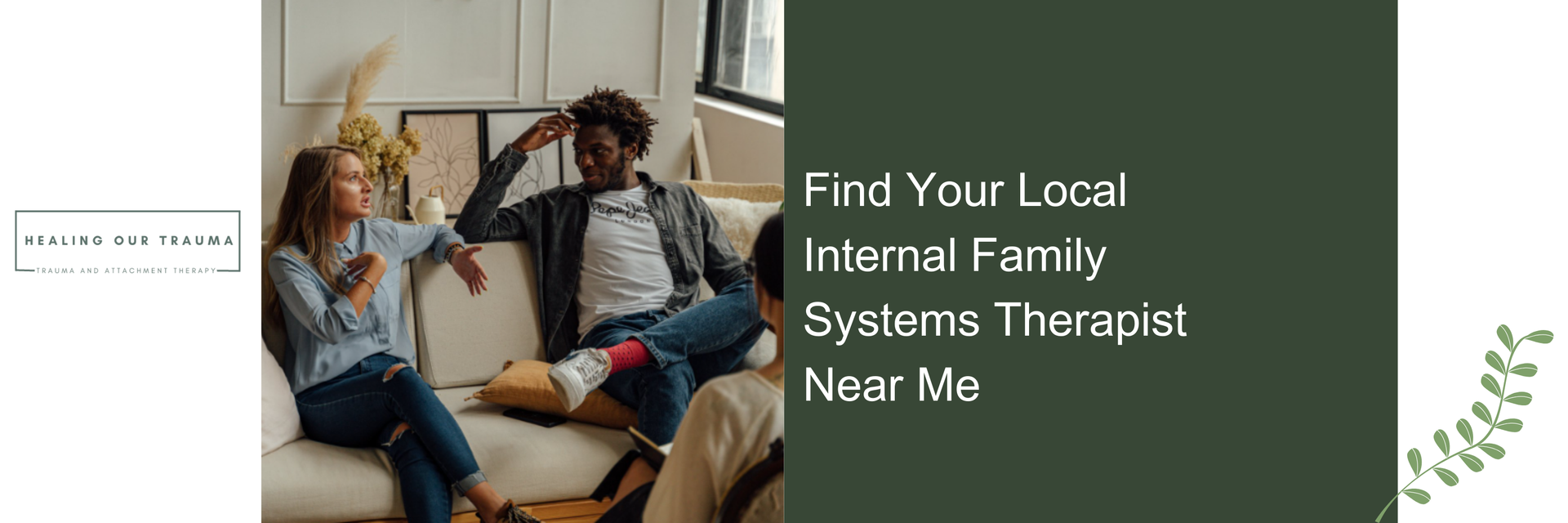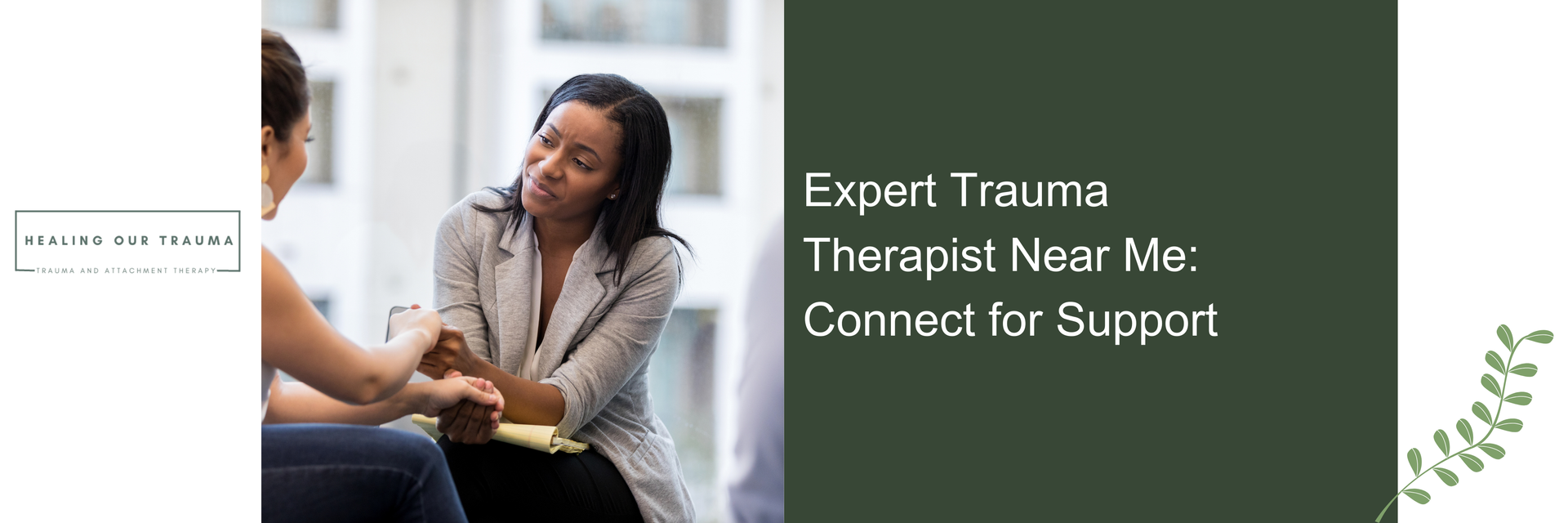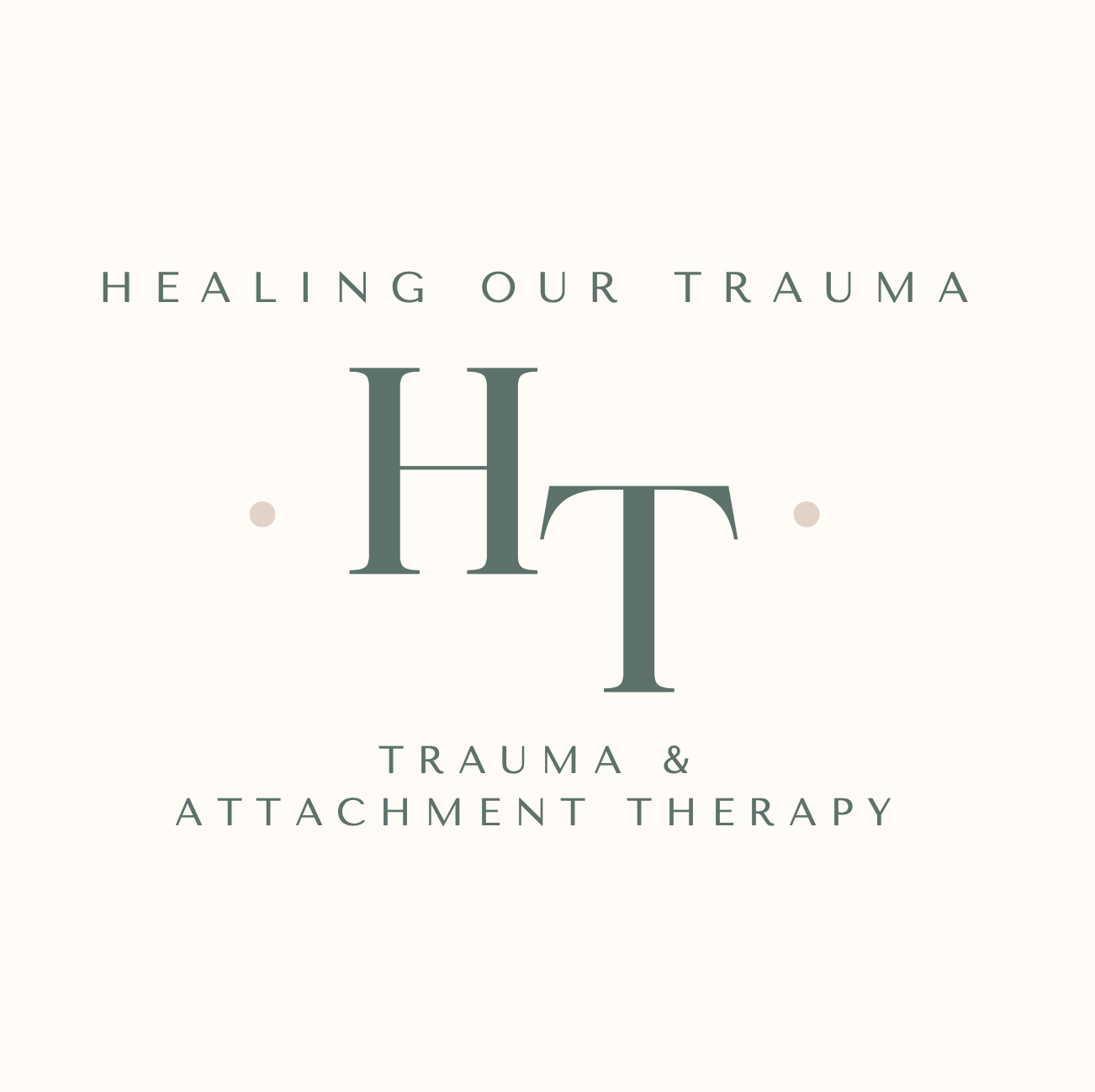Journey To Healing: Trauma Survivor Guide
Trauma Survivor: Healing from the Inside Out
What are some common symptoms experienced by trauma survivors?
Common symptoms experienced by trauma survivors include flashbacks, nightmares, anxiety, depression, hypervigilance, and avoidance of triggers. These can greatly impact daily functioning and quality of life. Seeking therapy and support can help in processing trauma and regaining a sense of safety and control.


Key Highlights
- Healing from trauma is a journey that starts from within and involves finding a sense of self and purpose.
- Trauma survivors often experience a range of emotional reactions and symptoms of PTSD, but with the right strategies, healing is possible.
- Understanding the different types of trauma, such as sexual assault and domestic violence, can survivors make sense of their experiences.
- Trauma doesn't just affect the mind, but also the body, leading to trauma responses and mental illness.
- Developing coping strategies and seeking professional help are important steps in the healing and recovery process.
Healing from trauma is a deeply personal and transformative journey. It is a process that begins from within, as survivors of trauma navigate their way towards healing and recovery. Trauma can be caused by a range of experiences, from a single traumatic event to ongoing abuse or neglect.
Whatever the cause, trauma can have a profound impact on a person's sense of self and well-being.
Survivors of trauma often experience a wide range of emotional reactions and symptoms of post-traumatic stress disorder (PTSD). These can include intrusive thoughts, nightmares, flashbacks, and heightened anxiety and fear. Additionally, trauma can affect a person's mental and physical health, making it challenging to trust others and feel safe in the world. Child abuse is a common cause of trauma, and survivors may experience delayed symptoms triggered by certain events, such as seeing a movie about child abuse. Understanding the timing of trauma symptoms is crucial in the healing process for survivors of child abuse.
Despite the significant challenges that trauma survivors face, healing is possible. It is a journey that requires time, patience, and support. By understanding the different types of trauma, recognizing the need for healing, and embracing vulnerability as strength, survivors can begin to reclaim their lives and find a sense of purpose and resiliency.
In this blog, we will explore the various aspects of healing from trauma, including understanding the different types of trauma, how trauma affects the mind and body, strategies for self-healing and recovery, professional approaches to trauma recovery, building a support system, and navigating setbacks and challenges. We will also discuss the importance of self-care in the healing journey.
By sharing information, resources, and strategies, this blog aims to provide support and guidance to trauma survivors as they embark on their path to healing from the inside out. So let's begin this journey together.


Understanding Trauma and Its Effects
Trauma is a deeply distressing event or experience that overwhelms a person's ability to cope. It can occur as a result of a single traumatic event, such as a car accident or natural disaster, or it can be caused by ongoing abuse or neglect. Traumatic stress can have a profound impact on a person's mental health and emotional well-being.
Survivors of trauma often experience a range of emotional reactions, including fear, anxiety, anger, and sadness. These emotional reactions are normal responses to an abnormal event. However, when these reactions persist and interfere with daily life, they may be symptoms of post-traumatic stress disorder (PTSD).
Common symptoms of PTSD include intrusive thoughts, nightmares, flashbacks, avoidance of reminders of the trauma, and heightened reactivity to triggers. These symptoms can significantly impact a person's quality of life and make it challenging to form and maintain healthy relationships.
It's important to remember that trauma affects each individual differently, and the healing process is unique to each person. By understanding the effects of trauma and seeking support, survivors can take the first step towards healing and reclaiming their lives.
The Different Types of Trauma
Trauma can manifest in various forms, and it's important to recognize and understand the different types of trauma. One of the most common types is sexual assault, which includes any unwanted sexual contact or activity. Survivors of sexual assault may experience a wide range of emotional and physical reactions, and it's crucial to seek support and professional help to begin the healing process, especially during the month of April, which is Sexual Assault Awareness Month.
Another form of trauma is family violence, which can include physical, emotional, or sexual abuse within the family unit. Survivors of family violence often struggle with feelings of fear, shame, and guilt, and it can be challenging to break free from the cycle of abuse. Seeking help from support groups, therapists, and other professionals can provide survivors with the tools and support needed to heal and move forward.
Childhood trauma, including neglect, physical abuse, or witnessing violence, can have long-lasting effects on a person's mental and emotional well-being. Childhood trauma can impact a person's sense of self, relationships, and overall functioning. Recognizing the impact of childhood trauma, including attachment trauma, is essential, as it can provide survivors with a deeper understanding of their experiences and guide them towards healing and recovery.
How Trauma Affects the Mind and Body
Trauma doesn't just affect the mind; it also has a profound impact on the body. When someone experiences trauma, their body's natural response is to enter into a state of high alert, known as the fight-or-flight response. This response is designed to protect us from immediate danger but can become triggered even in non-threatening situations for trauma survivors. Trauma can also affect the spiritual aspect of a person's life.
The constant state of hyperarousal and hypervigilance can lead to physical symptoms, such as rapid heart rate, difficulty sleeping, and digestive issues. Survivors of trauma may also experience mental health challenges, such as depression, anxiety disorders, and post-traumatic stress disorder (PTSD). These mental health conditions can make it hard time for survivors to trust others, feel safe in their own bodies, and navigate day-to-day life.
It's important for trauma survivors to understand that their responses are normal reactions to an abnormal event. Seeking support from mental health professionals, such as trauma therapists, can provide survivors with the tools and strategies needed to navigate the healing process and find a sense of peace and stability within themselves. Additionally, if you are experiencing survivor reactions to a traumatic event, there are a number of things you can do to help yourself, such as talking to supportive people who will not judge you and explaining your emotions to help gain perspective.


The Journey of Healing Begins Within
The journey of healing from trauma begins within the survivor. It involves reconnecting with oneself, finding a sense of purpose, and working through the emotional pain that trauma has caused.
One of the first steps in the healing process is recognizing the need for healing. This involves acknowledging the impact trauma has had on one's life and understanding that healing is a personal journey that requires time, patience, and support. It's essential for survivors to give themselves permission to prioritize their well-being and seek the help they need.
Embracing vulnerability as strength is another crucial aspect of the healing journey. It takes courage to face the pain and emotions associated with trauma, but by allowing oneself to be vulnerable, survivors can begin to heal and grow.
Recognizing the Need for Healing
Recognizing the need for healing is a significant step in the journey of recovery from trauma. When survivors acknowledge the impact of their traumatic experiences and the negative effects it has had on their lives, they can begin to take proactive steps towards healing.
Trauma can leave deep emotional wounds that may manifest in different ways, such as anxiety, depression, or difficulty concentrating. It's important for survivors to understand that these reactions are normal responses to abnormal events and that seeking professional help is a sign of strength and self-care.
The timing of trauma healing is unique to each individual. Some survivors may feel ready to on their healing journey shortly after the traumatic event, while others may need more time of trauma to process and recover. It's essential for survivors to honor their own timeline and not compare their healing process to others. Each step taken towards healing is valid and significant.
Embracing Vulnerability as Strength
Embracing vulnerability as strength is a transformative aspect of the healing journey. It requires survivors to confront their pain, emotions, and fears with courage and openness.
Vulnerability allows survivors to connect deeply with themselves and others. It is through vulnerability that healing can take place, as survivors learn to trust, share their experiences, and seek support. By breaking down the walls of self-protection, survivors can begin to build resilience and find a sense of empowerment.
However, it's important to acknowledge that embracing vulnerability can be challenging due to societal stigma surrounding trauma. Some survivors may fear judgment, blame, or misunderstanding. It's crucial for survivors to surround themselves with a supportive and understanding community that can provide the safe space necessary for vulnerability to flourish.
By embracing vulnerability as strength, trauma survivors can rewrite their narrative, reclaim their power, and create a new path towards healing and personal growth.


Strategies for Self-Healing and Recovery
Developing a mindfulness practice can significantly aid in self-healing. Embracing self-compassion is crucial for fostering inner resilience. By practicing mindfulness, you can nurture a deeper connection with your emotions and thoughts. Additionally, self-compassion encourages a kind and understanding approach towards yourself during the healing journey. These strategies empower trauma survivors to navigate their recovery path with self-awareness and gentleness.
Developing a Mindfulness Practice
Embarking on the journey of healing as a trauma survivor involves developing a mindfulness practice. By integrating mindfulness techniques into daily routines, individuals can cultivate self-awareness and emotional regulation. Mindfulness encourages staying present in the moment, acknowledging trauma responses without judgment, and fostering a compassionate relationship with oneself. This practice aids in recognizing triggers, managing stress effectively, and enhancing overall well-being. It empowers survivors to navigate through challenging emotions with resilience and self-compassion, ultimately fostering inner peace and healing.
The Power of Self-Compassion in Healing
Self-compassion plays a vital role in the journey of healing for trauma survivors. Offering oneself kindness and understanding during difficult times can significantly aid in the recovery process. By acknowledging one's pain without judgment and treating oneself with the same care as a supportive friend, individuals can cultivate resilience and self-worth. Self-compassion serves as a powerful tool in navigating the emotional challenges that arise from traumatic experiences, fostering inner strength and promoting overall well-being and control over one's own life.
Professional Approaches to Trauma Recovery
Trauma recovery often necessitates professional intervention. Trauma therapists can provide specialized support tailored to individual experiences. Recognizing the signs indicating the need for professional help is crucial. Therapeutic modalities like EMDR or or other trauma-focused therapies offer effective methods for processing and healing from traumatic experiences. Seeking help from a mental health professional can significantly aid in navigating the complex path to recovery. Trusting the expertise of trained clinicians can facilitate the journey towards healing and restoration.
When to Seek Professional Help
If you find yourself struggling to cope with the aftermath of a traumatic event, experiencing persistent traumatic stress or symptoms of PTSD, it may be time to consider seeking professional help. Trauma therapists and mental health professionals specializing in trauma recovery can provide the necessary support and guidance to navigate through the complexities of trauma responses. Remember, seeking professional help is a courageous step towards healing and it is okay to reach out for assistance when you need it the most.
Therapeutic Modalities for Trauma Recovery
Effective therapeutic modalities for trauma recovery include Eye Movement Desensitization and Reprocessing (EMDR), Attachment Therapy, Emotion Focused Therapy, Internal Family Systems and Part Work, Narrative Therapy and Somatic Therapy. These approaches focus on processing traumatic memories, managing trauma responses, and fostering healing. EMDR helps reprocess traumatic memories, while the others address thought patterns and emotional regulation. Each modality offers unique benefits in navigating the complex journey of trauma recovery.


Building a Support System
Surrounding yourself with a network of supportive friends, family members, or a community is essential in the journey of healing as a trauma survivor. These individuals can provide validation, reassurance, and comfort during difficult times. Communicating your needs to others helps build a strong support system that understands your challenges and is willing to offer necessary assistance. Sharing your experience with trusted individuals fosters a sense of belonging, connection, and empathy, which are crucial for building close relationships and healing.
How to Communicate Your Needs to Others
Start by expressing your feelings honestly and clearly. Use "I" statements to convey your emotions without sounding accusatory. Practice active listening and ask for support when needed. Be open about your boundaries and what kind of help you require. Educate others on how they can assist you effectively. Remember, communication is key in fostering understanding and building a supportive network. Sharing your needs authentically can create a space for meaningful connections and aid in your healing journey.
Navigating Setbacks and Challenges
Navigating setbacks and challenges is a crucial aspect of the healing journey for trauma survivors. Coping strategies for difficult days can vary and might include mindfulness techniques or reaching out to supportive friends or professionals for help. It's essential to keep progress in perspective, understanding that setbacks are a normal part of the recovery process. By practicing self-compassion and resilience, survivors can learn to navigate the challenges that arise on their path to healing.
Coping Strategies for Difficult Days
It's crucial to have coping strategies for difficult days as a trauma survivor. When faced with overwhelming emotions or triggers, grounding techniques like deep breathing or visualization can help regain a sense of calm. Engaging in activities you enjoy, such as art or music therapy, can provide a healthy outlet for expression. Additionally, reaching out to a support system for reassurance and connection can offer much-needed comfort during challenging times. Remember, it's okay to prioritize self-care and seek help when needed.
Keeping Progress in Perspective
It's crucial to keep progress in perspective during the journey of healing as a trauma survivor. Remember, healing is not a linear process; setbacks are normal and part of the recovery. Celebrate even the smallest victories and be patient with yourself on difficult days. Reflect on how far you have come, acknowledging the strength and resilience it took to reach this point. By recognizing your progress over a long time, you empower yourself to continue moving forward with grace and compassion.
The Importance of Self-Care in Trauma Recovery
Self-care plays a pivotal role in the journey of trauma recovery. By prioritizing self-care, trauma survivors can nurture their physical and emotional well-being. Engaging in activities that promote relaxation and self-compassion can help manage the emotional pain and stress associated with traumatic experiences. Whether it's through practicing mindfulness, engaging in physical exercises like yoga, or seeking support from loved ones, self-care acts as a cornerstone of healing and resilience in the face of trauma. Prioritizing self-care is crucial in fostering a sense of strength and empowerment amidst adversity.
Physical Self-Care Activities
Engaging in physical self-care activities can be a vital component of healing for trauma survivors. Activities such as yoga, exercise, or simply going for a walk can help regulate the body's stress response and promote overall well-being. Physical movement can release tension held in the body from past traumas, allowing for a sense of release and relaxation. Prioritizing regular physical self-care practices can contribute to a holistic approach to healing from traumatic experiences.
Emotional Self-Care Practices
Engage in soothing activities like journaling, meditation, or gentle yoga to nurture your emotional well-being. Prioritize setting boundaries to protect your mental space and seek solace in nature or art for emotional rejuvenation. Practice self-compassion and affirmations to counter negative self-talk. Connect with supportive friends or a therapist regularly to process your emotions and build resilience. Remember, your emotional healing is a crucial aspect of your overall well-being as a trauma survivor.
In the journey of healing from trauma, it is vital to recognize the need for self-compassion and vulnerability as sources of strength. Embracing mindfulness practices and seeking professional help when necessary are important steps towards recovery. Building a supportive community and communicating your needs effectively can aid in navigating setbacks and challenges along the way. Remember, self-care is crucial in trauma recovery; prioritize physical and emotional well-being to nurture yourself through the healing process. Your trauma survival is a testament to your resilience and courage; continue to nurture your inner self with compassion and care. Healing Our Trauma is here to help schedule your appointment today!
Recent Posts
Similar Posts
At Healing Our Trauma we know that you want to be on a path to recovery and restoration. In order to do that, you need to address your underlying, unmet needs. The problem is most people don't know where to turn to or how to start which makes you feel frustrated and stuck. This leads some to want to quit. We believe in your resilience and the possibility of reclaiming a life marked by strength, growth, and renewed hope. We understand that overcoming trauma is a cognitive processing journey that requires personalized care, empathy, and a safe space for healing.
So, schedule a free evaluation. And in the meantime, sign-up for our Support Newsletter.
Together, we can navigate this journey toward healing, ensuring that you not only survive but thrive in the aftermath of trauma.
Contact Us
816-200-7909
Have a question? We are here to help. Send us a message and we’ll be in touch.
Contact Us
We will get back to you as soon as possible
Please try again later
Insurance Accepted: Aetna (Missouri Only)
Forms of Payment: Cash, Check, Visa, Mastercard, Discover, American Express
Our address
Work Hours
- Mon - Fri
- -
- Sat - Sun
- Closed




